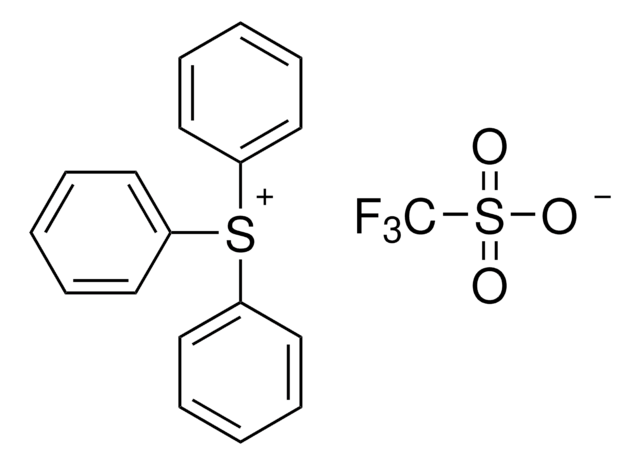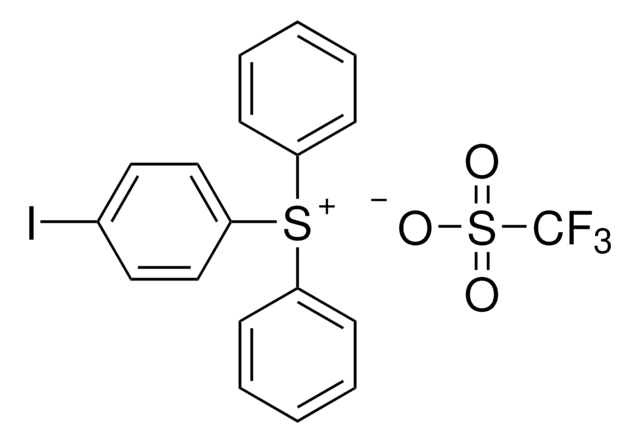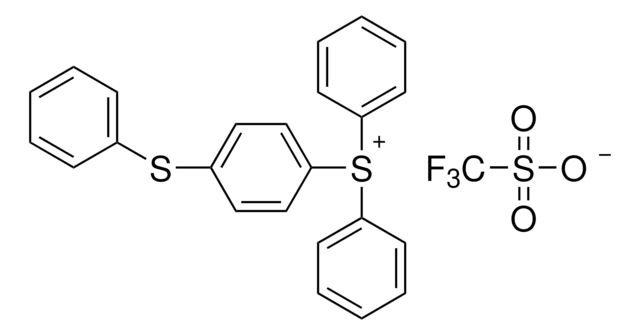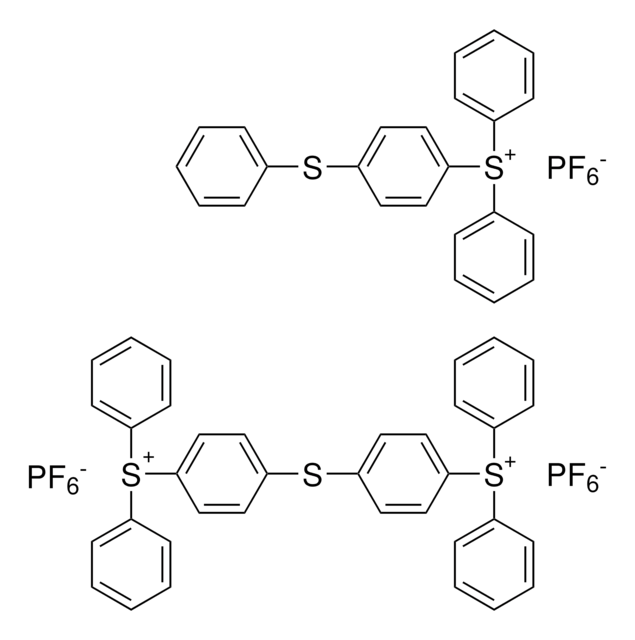531081
N-Hydroxynaphthalimide triflate
electronic grade, ≥99%
Synonym(s):
N-Hydroxynaphthalimide trifluoromethanesulfonate, HNT, NHN-TF
About This Item
Recommended Products
grade
electronic grade
Assay
≥99%
mp
212.1-214.2 °C
solubility
PGMEA: 1%
ethyl lactate: <1%
γ-butyrolactone: ~2%
SMILES string
FC(F)(F)S(=O)(=O)ON1C(=O)c2cccc3cccc(C1=O)c23
InChI
1S/C13H6F3NO5S/c14-13(15,16)23(20,21)22-17-11(18)8-5-1-3-7-4-2-6-9(10(7)8)12(17)19/h1-6H
InChI key
LWHOMMCIJIJIGV-UHFFFAOYSA-N
General description
Application
Storage Class Code
11 - Combustible Solids
WGK
WGK 3
Flash Point(F)
Not applicable
Flash Point(C)
Not applicable
Personal Protective Equipment
Choose from one of the most recent versions:
Certificates of Analysis (COA)
Don't see the Right Version?
If you require a particular version, you can look up a specific certificate by the Lot or Batch number.
Already Own This Product?
Find documentation for the products that you have recently purchased in the Document Library.
Our team of scientists has experience in all areas of research including Life Science, Material Science, Chemical Synthesis, Chromatography, Analytical and many others.
Contact Technical Service








